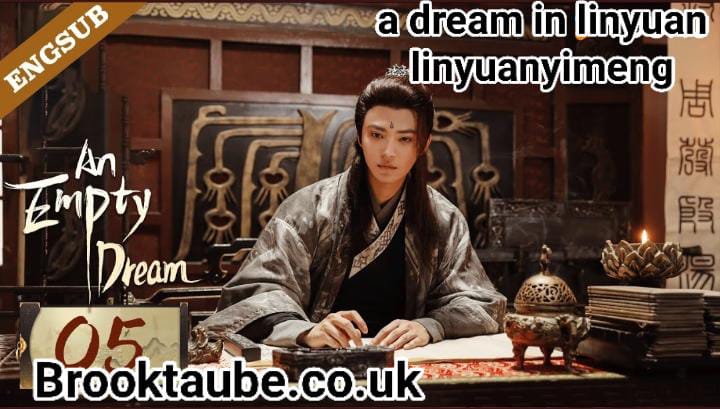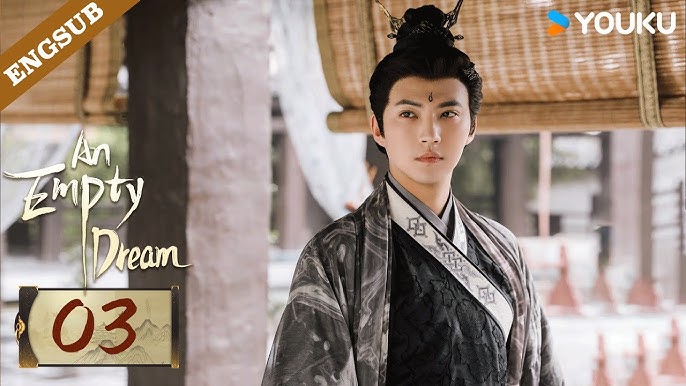
The phrase “a dream in Linyuan” or “Linyuanyimeng” (林园一梦) carries with it an air of mystique, layered with meaning. While it may seem enigmatic at first, when broken down, it reveals deep cultural, philosophical, and artistic connections that resonate with Chinese tradition. It combines elements of nature, literature, spirituality, and the delicate interplay between dreams and reality. This article will explore the meaning and significance of this phrase, its origins, its cultural and philosophical implications, and how it continues to influence contemporary art and thought.
Understanding “A Dream in Linyuan”
The term “Linyuan” (林园) literally translates to “forest garden” in Chinese. It evokes an image of a serene, natural space, possibly a private garden or retreat surrounded by lush trees and tranquil surroundings. “Linyuan” symbolizes a kind of peaceful, idyllic sanctuary, often representing a space for reflection, spiritual renewal, and creativity. It is a place a dream in linyuan linyuanyimeng removed from the bustle of everyday life, where one can retreat into nature and find solace or inspiration.
When paired with the word “Yimeng” (一梦), meaning “one dream,” the phrase “Linyuanyimeng” suggests a dream, or a state of existence, set in this idealized natural space. In the context of Chinese philosophy, “dream” can signify more than just a sleep-induced experience; it can represent the boundary between illusion and reality, the fleeting nature of time, and the blurred lines between the physical world and the world of thought or spirit.
To understand “A Dream in Linyuan,” we must look at the historical, cultural, and literary traditions that shape it. The phrase isn’t just a poetic image—it reflects a broader worldview where dreams, nature, and the search for meaning intersect.
Historical and Cultural Context
The Role of Gardens in Chinese Culture
Gardens have held significant cultural and philosophical meaning in Chinese history for millennia. They are often seen as microcosms of the larger universe, a reflection of the Taoist and Confucian ideals of harmony between human beings and nature. A garden is more than just a physical space; it is a spiritual and philosophical construct a dream in linyuan linyuanyimeng that encapsulates the principles of balance, simplicity, and inner peace.
The classical Chinese garden, which influenced much of East Asian landscape design, was carefully designed to reflect natural beauty while adhering to these philosophical principles. The integration of water, stone, plants, and trees was intended to create a harmonious environment that would allow one to contemplate life, the universe, and existence. In this context, the idea of “Linyuan” (forest garden) reflects an environment conducive to deep thought, meditation, and dreaming.
The Concept of Dream in Chinese Philosophy
In Chinese philosophy, dreams have a multifaceted role. They often symbolize the tension between the material world and the spiritual or ethereal realms. The most prominent philosophical traditions in China—Taoism, Confucianism, and Buddhism—view dreams as significant, yet illusory, experiences that offer insights into one’s true self or the greater cosmic order.
The famous Taoist text, the Zhuangzi (also known as the Chuang Tzu), features the tale of Zhuang Zhou, who dreams he is a butterfly. Upon waking, he questions whether he is a man who dreamed of being a butterfly or a butterfly dreaming of being a man. This story illustrates the Taoist belief in the fluidity between illusion and reality. In this light, “Linyuanyimeng” could be interpreted as a reflection on the nature of existence itself—whether life is a dream, a fleeting moment in time, or an eternal reality.
In Confucianism, dreams are often viewed as reflections of one’s moral and emotional state. Dream interpretation in this context can reveal insights into one’s character, intentions, and desires. The connection between a dream in linyuan linyuanyimeng dreams and self-cultivation, which is central to Confucian ethics, suggests that “a dream in Linyuan” may signify a pursuit of inner peace and moral clarity in a space of natural beauty.
Buddhism, particularly the Chan (Zen) tradition, also explores the nature of dreams and illusions. Chan teachings emphasize that everything in life—our thoughts, perceptions, and experiences—is ultimately illusory and that true enlightenment comes from seeing through these illusions. “Linyuanyimeng” could therefore be a metaphor for the illusory nature of our perceptions, an invitation to see beyond the surface of the world into its deeper truths.

The Symbolism of Dreams in Art and Literature
Literary Significance
The idea of a dream set in a tranquil, natural space also resonates deeply with Chinese literature, particularly poetry and classical texts. Ancient Chinese poets and scholars often wrote about dreams as a way to explore the transcendental aspects of life, especially in the context of nature. Many of these writings are filled with imagery of secluded gardens, flowing rivers, and mountains shrouded in mist, all of which evoke a sense of the dream-like quality of existence.
One of the most notable a dream in linyuan linyuanyimeng examples of this is the works of the poet and philosopher Wang Wei (699–759), who often wrote about gardens and natural spaces as places for quiet reflection and transcendence. His poetry, deeply influenced by Daoist thought, speaks of the harmony between humans and nature and the fleeting, ephemeral nature of life. In this sense, the “dream in Linyuan” might be interpreted as a metaphor for the impermanence of existence—a recurring theme in Chinese art and philosophy.
In literature, dreams often serve as a vehicle for a dream in linyuan linyuanyimeng exploring questions of identity, fate, and the human condition. In the Dream of the Red Chamber (紅樓夢), one of China’s Four Great Classical Novels, dreams play a central role in the unfolding narrative. The protagonist, Jia Baoyu, experiences dreams that challenge his understanding of the world, symbolizing the transient nature of human life and desires. His dreams invite him to question the reality of his experiences, echoing the philosophical concerns found in the phrase “Linyuanyimeng.”
Artistic Interpretations
In traditional Chinese art, the landscape painting genre often incorporates elements that are dreamlike in their depiction of nature. These paintings frequently blur the lines between reality and imagination, with misty mountains and ethereal a dream in linyuan linyuanyimeng rivers creating an atmosphere of mystery and introspection. Artists like Fan Kuan (960–1030) and Dong Qichang (1555–1636) were known for their landscape works that invited viewers to lose themselves in the beauty of nature, as though in a dream.
Contemporary interpretations of “Linyuanyimeng” in visual arts have evolved as well. Modern artists, influenced by both traditional Chinese art and Western artistic movements, continue to explore the tension between nature and human perception. In these works, the dreamlike quality of the landscape becomes a metaphor for both the inner psychological state of the artist and the collective search for meaning in a rapidly changing world.
Philosophical Interpretations of “Linyuanyimeng”
The Dream of Harmony and Balance
One of the central philosophical ideas embedded in the phrase “a dream in Linyuan” is the notion of harmony. In Taoism, harmony between humans and nature is seen as the ultimate goal, where one’s actions are in sync with the natural r a dream in linyuan linyuanyimeng hythms of the world. In this framework, the “dream” within “Linyuan” can be seen as an allegory for the ideal state of being—a state of perfect balance, peace, and understanding of the interconnectedness of all things.
The natural world, in this sense, is not separate from human consciousness; rather, it is a reflection of the same spiritual forces that govern our inner lives. The “dream” of the Linyuan becomes a metaphor for the dream of living in complete harmony with the universe—an elusive, but deeply desirable, state.

The Illusion of Control and Reality
Another philosophical layer of “Linyuanyimeng” is the a dream in linyuan linyuanyimeng idea that life itself is a kind of illusion. This interpretation borrows from both Taoism and Buddhist thought, which emphasize the impermanent and illusory nature of the world. The dream in Linyuan can be seen as an acknowledgment that our perceptions of reality are fleeting and subjective, shaped by the limitations of our senses and consciousness.
In this context, “Linyuanyimeng” serves as a reminder to approach life with humility and awareness. If all of life is a dream, then our attachments, desires, and even our sense of self are mere constructs that we must learn to navigate without clinging to them.
The Continuing Relevance of “A Dream in Linyuan” Today
In modern times, the phrase “Linyuanyimeng” continues to resonate with individuals seeking refuge from the stresses of modern life. In a world where technology and urbanization have increasingly separated humans from nature, the idea of a dream in a serene garden represents a longing for peace, simplicity, and connection to the natural world.
Contemporary interpretations of the a dream in linyuan linyuanyimeng phrase often involve the search for inner peace and balance in an increasingly chaotic and disconnected society. As people seek ways to reconnect with nature, “Linyuanyimeng” serves as both a metaphor for the ideal and a reminder that true peace is found not in external conditions, but in one’s own state of mind.
Conclusion
“A Dream in Linyuan” or “Linyuanyimeng” is a phrase rich in meaning, rooted in the traditions of Chinese culture, philosophy, and art. It evokes a world where nature and spirit meet, where dreams blur the boundaries between reality and illusion, and where the quest for inner peace is ever-present. Whether in ancient poetry or modern art, the dream of Linyuan remains a powerful symbol of the human desire.
Also read this;